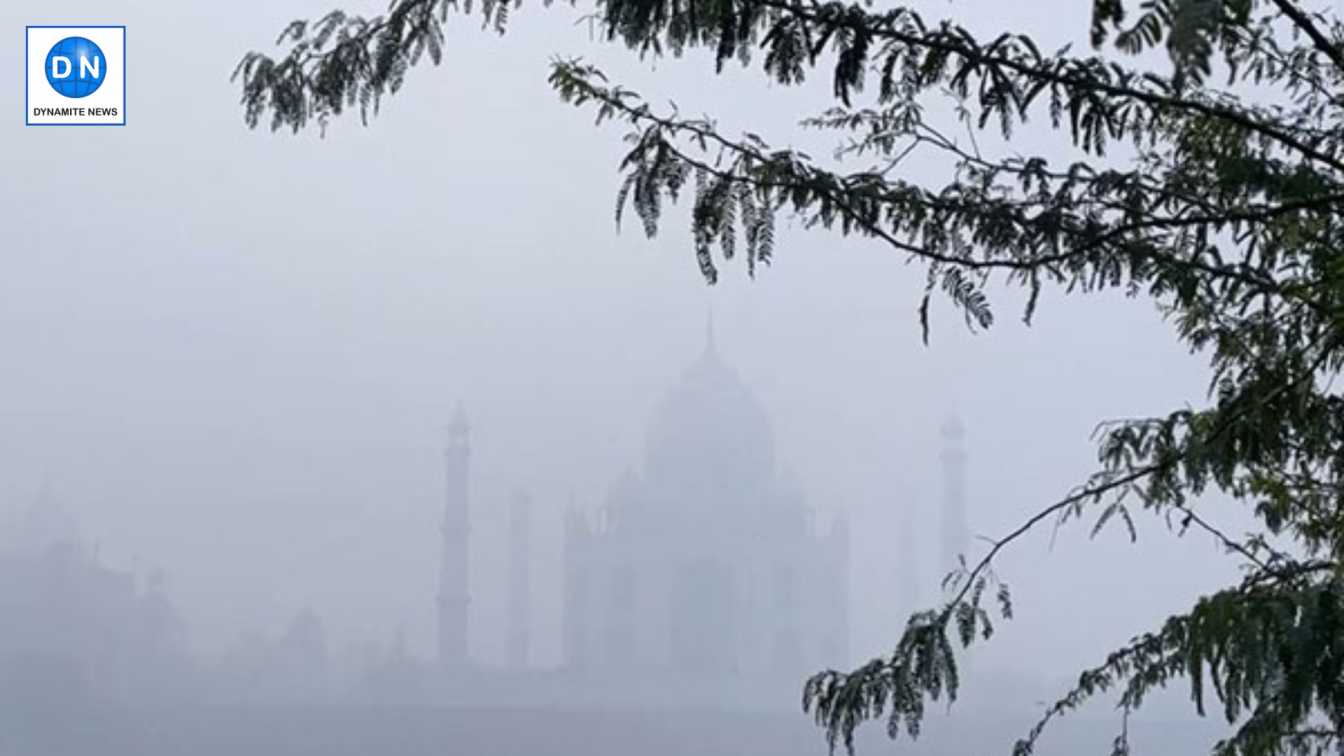
Agra: A thick layer of fog engulfed Agra city on Thursday amid the inclement weather conditions in the city. The increased fog has resulted in the reduced visibility in the area.
Due to the increased fog, the iconic monument Taj Mahal was barely captured in the visuals as it was covered in a blanket of haze.
According to the prediction of the India Meteorological Department (IMD), the minimum temperature can touch the mark of 10 degrees Celsius while the maximum temperature is expected to hover around 19 degrees Celsius in Agra today.
On Wednesday, the regional Met department predicted that January 2 would be a 'cold day' for the city.
Additionally, a thick blanket of fog descended over Uttar Pradesh's Mathura city, resulting in reduced visibility and traffic snarls.
Meanwhile, the national capital is experiencing a significant dip in temperatures, as the mercury in many regions has plummeted significantly as the cold weather prevails at the start of the new year.
According to the India Meteorological Department, the minimum temperature at Delhi's Palam has dipped further to 6.5 degrees Celsius on Thursday from 7 degrees Celsius on Wednesday.
Also Read |
Pot Of Hot Khichdi falls On 2 Devotees at UP Ashram, Hospitalised
The minimum temperatures recorded
The minimum temperatures recorded at Safdarjung had a slight increase to 7.6 degrees Celsius today from 7.4 degrees Celsius on Wednesday.
The IMD has also forecasted an average minimum temperature of 8 degrees Celsius with the average maximum temperature rising to 17 degrees Celsius today.
The IMD on Wednesday also forecast an active western disturbance starting today, which is expected to raise temperatures in eastern, central, and northern India over the next 3-5 days.
However, the Western Himalayan region is likely to experience heavy rain and snowfall due to the disturbance.
Also Read |
Taj Mahal covered with thick fog; Tourists disappointed due to low visibility
"We are forecasting a western disturbance that may become active from tomorrow.
Along with this, there is a possibility of another western disturbance.
Temperatures may rise in east, central, and north India in the next 3-5 days," IMD scientist Soma Sen Roy said. (With Agency Inputs)







